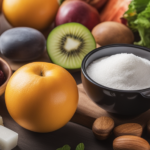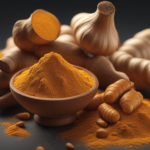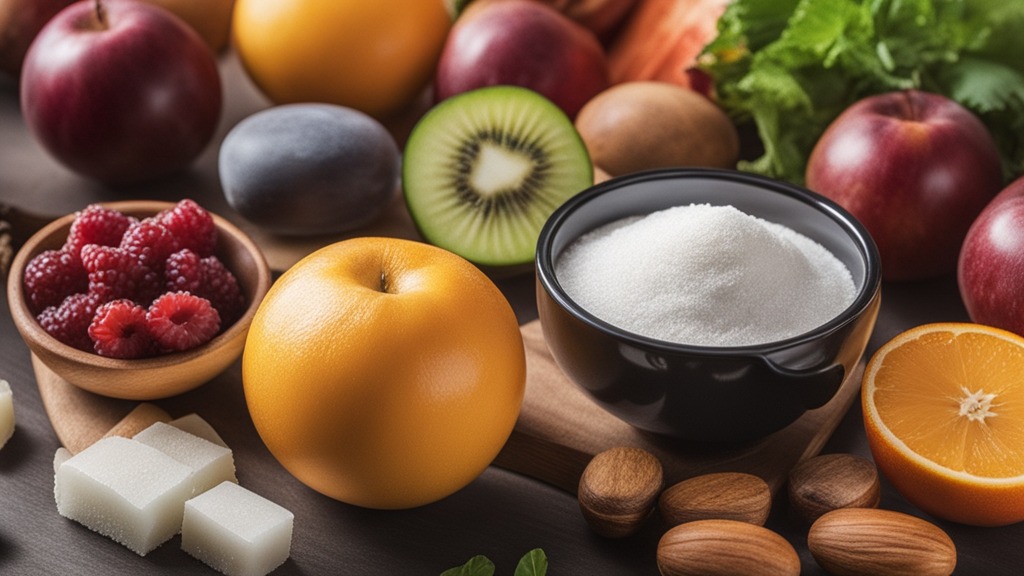Insulin sensitivity plays a crucial role in how effectively your body processes glucose and regulates blood sugar levels. Poor insulin sensitivity, or insulin resistance, can lead to conditions such as type 2 diabetes, metabolic syndrome, and weight gain. Improving insulin sensitivity naturally can help your body use insulin more efficiently, stabilize blood sugar, and boost overall health. In this article, we will explore natural ways to enhance insulin sensitivity through diet, exercise, and lifestyle changes.
What Is Insulin Sensitivity?
Insulin is a hormone produced by the pancreas that allows cells to absorb glucose from the bloodstream for energy. Insulin sensitivity refers to how responsive your cells are to insulin. When insulin sensitivity is high, your cells can effectively use glucose, keeping blood sugar levels stable. On the other hand, low insulin sensitivity, also known as insulin resistance, means that the body requires more insulin to process glucose, which can lead to elevated blood sugar levels over time.
Improving insulin sensitivity is key to preventing or managing type 2 diabetes and achieving better metabolic health.
1. Eat a Balanced, Whole-Food Diet
Diet is one of the most effective ways to naturally improve insulin sensitivity. Here are some key dietary strategies:
a. Focus on Whole, Unprocessed Foods
Processed foods high in refined sugars, unhealthy fats, and additives can impair insulin sensitivity. A diet rich in whole, unprocessed foods such as vegetables, fruits, lean proteins, and healthy fats can improve glucose metabolism and support insulin function.
Tip:
Opt for foods like leafy greens, berries, lean meats, and healthy oils like olive oil and avocado.
b. Prioritize Fiber-Rich Foods
Fiber, especially soluble fiber, slows down the absorption of sugar into the bloodstream, helping to prevent blood sugar spikes and improve insulin sensitivity. Foods high in fiber include:
- Oats
- Lentils
- Beans
- Whole grains
- Vegetables like broccoli and Brussels sprouts
Tip:
Aim for 25-30 grams of fiber per day for optimal blood sugar control and enhanced insulin sensitivity.
c. Add Healthy Fats
Healthy fats, such as omega-3 fatty acids found in fatty fish like salmon, sardines, and flaxseeds, have anti-inflammatory properties that can improve insulin sensitivity. Additionally, monounsaturated fats from avocados, nuts, and olive oil can promote better glucose control.
Tip:
Incorporate healthy fats in each meal to balance your blood sugar levels.
d. Include Protein in Every Meal
Protein helps regulate blood sugar and can slow the absorption of carbohydrates. Consuming adequate protein can enhance insulin sensitivity by reducing post-meal blood sugar spikes.
Good sources of protein include:
- Lean meats (chicken, turkey)
- Fish
- Eggs
- Tofu
- Legumes
2. Exercise Regularly
Exercise is one of the most effective natural ways to improve insulin sensitivity. Both aerobic exercise and resistance training can enhance your body’s ability to use insulin.
a. Aerobic Exercise
Cardio exercises like walking, running, cycling, and swimming improve the uptake of glucose by muscle cells, which enhances insulin sensitivity. Regular aerobic exercise has been shown to improve insulin sensitivity even in individuals with type 2 diabetes.
Tip:
Aim for at least 30 minutes of moderate aerobic exercise 5 days a week to improve insulin function.
b. Resistance Training
Lifting weights and strength training build muscle mass, which is essential for improving insulin sensitivity. More muscle mass means your body can store more glucose, reducing blood sugar levels and improving how your body responds to insulin.
Tip:
Incorporate resistance training 2-3 times per week, focusing on large muscle groups like legs, back, and chest.
c. High-Intensity Interval Training (HIIT)
HIIT involves short bursts of intense activity followed by periods of rest. This type of training has been shown to improve insulin sensitivity even more effectively than moderate-intensity exercise in some cases.
Tip:
Consider adding 2-3 HIIT workouts per week to boost insulin sensitivity and improve metabolic health.
3. Maintain a Healthy Weight
Excess body fat, particularly around the abdomen, is linked to insulin resistance. Losing even a small percentage of body weight (5-10%) can significantly improve insulin sensitivity. Weight loss reduces inflammation and decreases the amount of fat stored in the liver and muscles, both of which can improve how the body uses insulin.
a. Focus on Fat Loss
When aiming to lose weight, prioritize fat loss rather than muscle loss. Muscle mass is crucial for glucose metabolism, and maintaining muscle during weight loss can enhance insulin sensitivity.
4. Get Enough Sleep
Lack of sleep and poor sleep quality can negatively impact insulin sensitivity. Studies have shown that sleep deprivation can lead to insulin resistance, elevated blood sugar levels, and increased hunger hormones. Prioritizing 7-9 hours of quality sleep each night can help improve your body’s insulin response.
Tips for Better Sleep:
- Stick to a consistent sleep schedule.
- Create a relaxing bedtime routine.
- Limit caffeine and screen time before bed.
5. Manage Stress
Chronic stress raises cortisol levels, which can interfere with insulin’s ability to function properly. High levels of cortisol have been linked to increased insulin resistance. Managing stress through relaxation techniques and mindfulness can help improve insulin sensitivity.
a. Practice Mindfulness and Meditation
Mindfulness practices such as meditation, deep breathing, and yoga have been shown to reduce cortisol levels and improve insulin sensitivity.
Tip:
Take 10-15 minutes each day to practice deep breathing exercises or meditation to help lower stress levels and enhance insulin function.
b. Engage in Relaxing Activities
Incorporating relaxing activities into your routine, such as reading, walking in nature, or spending time with loved ones, can help reduce stress and promote better insulin sensitivity.
6. Stay Hydrated
Drinking plenty of water throughout the day helps regulate blood sugar and supports the kidneys in flushing out excess glucose. Dehydration can lead to higher blood sugar levels, which may impair insulin sensitivity.
Tip:
Aim for at least 8 cups (2 liters) of water per day, and more if you’re physically active.
7. Consider Supplements
Some supplements may help improve insulin sensitivity. However, it’s important to consult with a healthcare provider before adding any supplements to your routine.
a. Magnesium
Magnesium is involved in hundreds of biochemical reactions in the body, including insulin regulation. Low magnesium levels are often linked to insulin resistance. Adding a magnesium supplement can help improve insulin sensitivity.
Foods high in magnesium include:
- Spinach
- Almonds
- Pumpkin seeds
- Avocados
b. Berberine
Berberine, a plant compound found in herbs like goldenseal and barberry, has been shown to improve insulin sensitivity and lower blood sugar levels.
c. Alpha-Lipoic Acid (ALA)
ALA is an antioxidant that may improve insulin sensitivity by reducing oxidative stress and inflammation in the body.
8. Intermittent Fasting
Intermittent fasting (IF) is an eating pattern where you cycle between periods of eating and fasting. Studies have shown that intermittent fasting can improve insulin sensitivity, reduce blood sugar levels, and promote fat loss.
Popular methods of intermittent fasting include:
- The 16/8 method: Fast for 16 hours and eat during an 8-hour window.
- The 5:2 method: Eat normally for 5 days and restrict calorie intake to 500-600 calories for 2 days.
Tip:
Consult a healthcare provider before starting intermittent fasting, especially if you have diabetes or other health conditions.
Conclusion
Improving insulin sensitivity is essential for better blood sugar control, metabolic health, and preventing or managing diabetes. By making simple but effective changes to your diet, exercise routine, and lifestyle, you can naturally enhance your body’s ability to use insulin. Incorporate more fiber, healthy fats, and protein into your diet, exercise regularly, reduce stress, and prioritize sleep for optimal insulin function. Remember, consistency is key—these natural strategies can lead to significant improvements in insulin sensitivity and overall health over time.
Q&A: Frequently Asked Questions
Q1: Can insulin sensitivity be improved without medication?
A1: Yes, insulin sensitivity can be improved naturally through diet, exercise, and lifestyle changes. In some cases, these changes may reduce the need for medication, but always consult with your doctor before making adjustments.
Q2: How long does it take to improve insulin sensitivity?
A2: The time it takes to improve insulin sensitivity varies from person to person. With consistent changes in diet, exercise, and lifestyle, some people may see improvements in a few weeks to a few months.
Q3: Can supplements alone improve insulin sensitivity?
A3: While some supplements may help, they should be combined with a healthy diet and lifestyle for the best results. Always consult with a healthcare provider before taking any supplements.
















